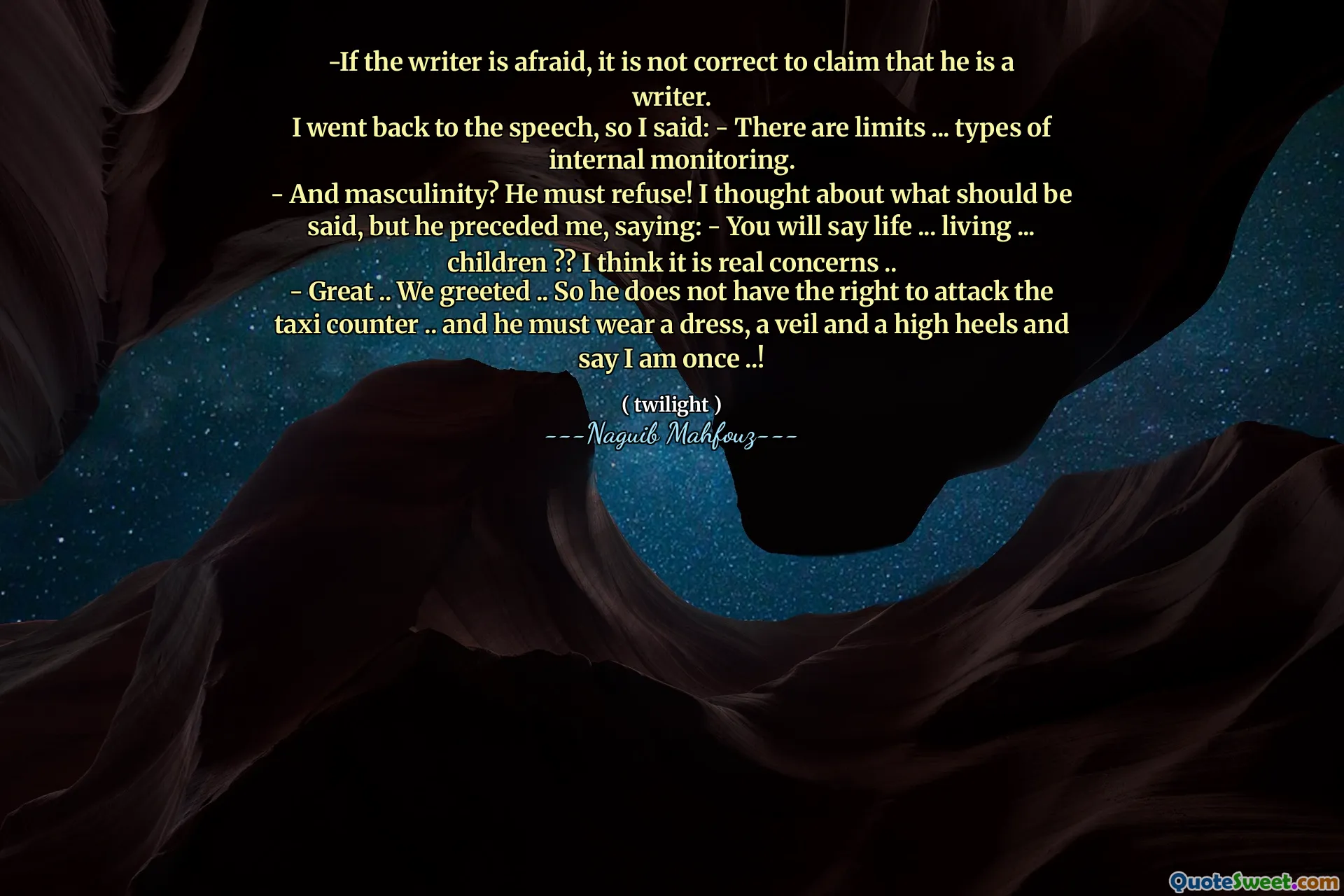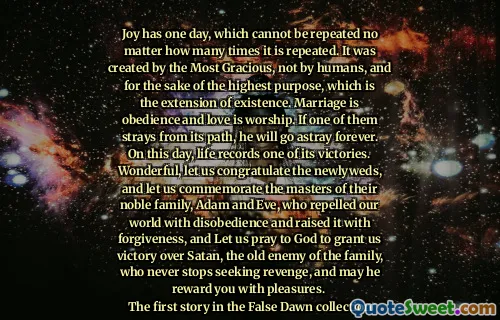
-If the writer is afraid, it is not correct to claim that he is a writer. I went back to the speech, so I said: - There are limits ... types of internal monitoring. - And masculinity? He must refuse! I thought about what should be said, but he preceded me, saying: - You will say life ... living ... children ?? I think it is real concerns .. - Great .. We greeted .. So he does not have the right to attack the taxi counter .. and he must wear a dress, a veil and a high heels and say I am once ..!
The text reflects a conversation about the complexities of identity, fear, and expression within the context of writing and masculinity. It highlights the idea that a true writer must confront their fears, suggesting that avoiding vulnerability undermines their authenticity. The discussion then shifts to societal norms regarding masculinity, leading to questions about how men express their emotions and concerns, particularly in relation to life and family.
The mention of adhering to traditional gender roles, such as wearing a dress or veil, emphasizes the rigid expectations placed on men and the absurdity of these norms when viewed through the lens of personal truth. This critique invites readers to examine how societal pressures can stifle creativity and genuine expression, ultimately urging a reevaluation of what it means to be a writer and a man in today's world.









